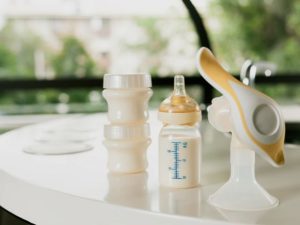Lactation Support
In this article, we will discuss lactation support for mothers in the postpartum period when mom and baby are separated, and baby is admitted to neonatal intensive care unit (NICU).
When a baby is born, it is recommended that moms hold their newborn with uninterrupted skin to skin contact until baby’s first feeding.
It will usually happen within baby’s first hour of life, or the Golden Hour. Skin to skin can help babies regulate their vital signs, temperature and promotes breast milk production.
When a baby is born and needs to be transferred to the NICU, both mom and baby miss this beautiful moment. Mom might have been looking forward to it and missing out on holding and snuggling her newborn baby can be hard, so we want to keep in mind what the patient is going through when caring for them.









